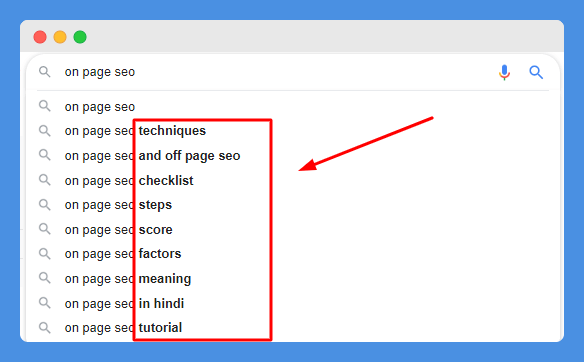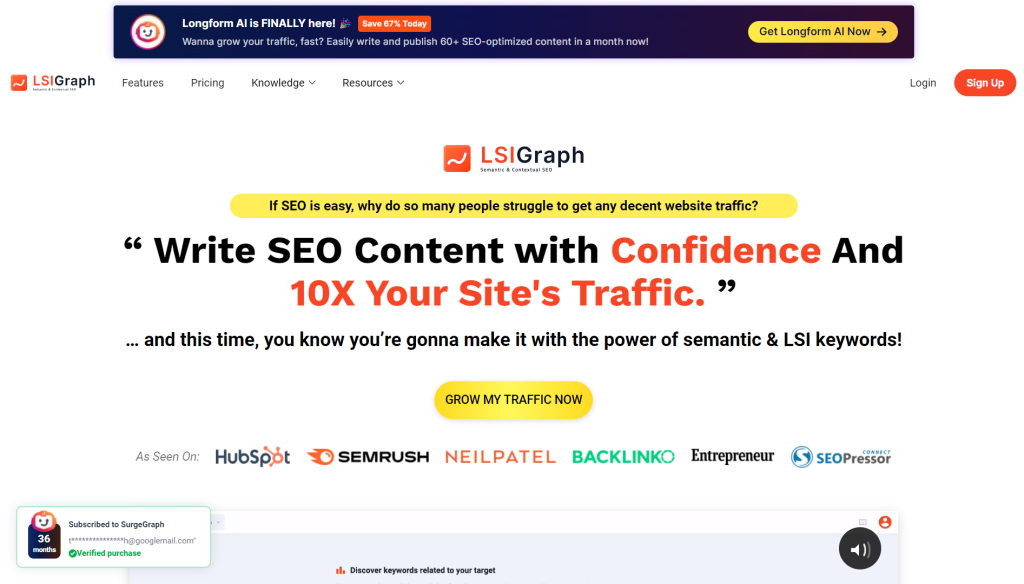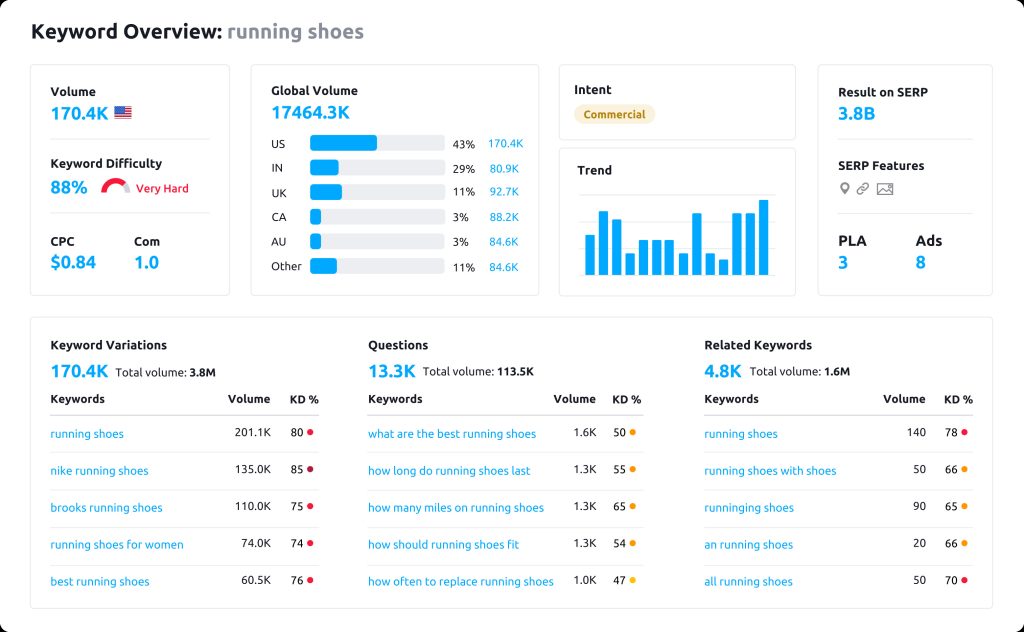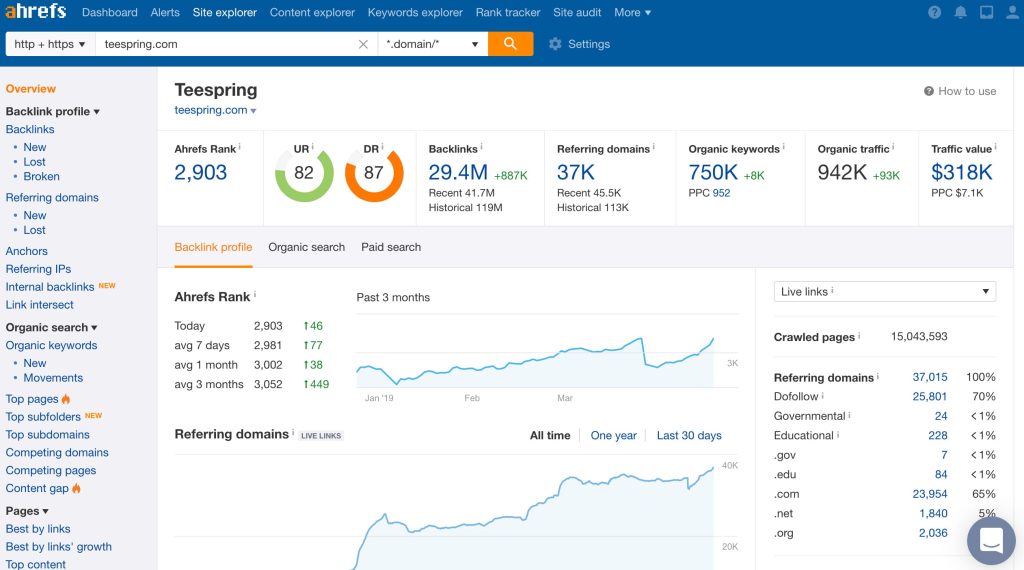
Imagine cracking the code to SEO success, unlocking a treasure trove of organic traffic to your website without needing to rely solely on high-competition keywords. Sounds too good to be true? It’s time to dive into the realm of LSI (Latent Semantic Indexing) keywords, the unsung hero of search engine optimization that can boost your content’s visibility and elevate your site above the competition. Get ready to uncover the power of LSI keywords and arm yourself with the knowledge needed to dominate your niche like never before!
LSI keywords, short for Latent Semantic Indexing, are words or phrases related to the main keyword being targeted in SEO. By including LSI keywords in your content, you can increase its contextuality and relevance, which may improve your website’s ranking in search engine results pages. However, it’s important to note that high-quality and relevant content is still the most critical factor for SEO success.
Understanding LSI Keywords
LSI keywords are search terms that are semantically related to the main keyword that you’re targeting. They help Google to understand what your page or website is about, and allow it to deliver more relevant search results to users. For example, if you’re writing a blog post about “healthy eating,” some LSI keywords might include “nutrition,” “fitness,” or “wellness.”

To better understand the concept of LSI keywords, think of them as synonyms or closely related words to your main keyword. Imagine you are writing an article about dogs. Your main keyword can be “dog breeds”, and your LSI keywords can be “canine,” “breed characteristics,” and “pet care.”
Incorporating LSI keywords into your content helps to add context and relevance to your topic, making it more valuable to both search engines and readers. Using a variety of related keywords naturally within your text can increase its contextuality and enhance its rankings on search engines.
Some people mistakenly believe that using LSI keywords automatically guarantees high rankings for their content. However, while these keywords do help Google understand the meaning behind your text, they are not the only aspect of SEO that matters. Quality content and user experience also play a significant role in determining which pages rank well for specific queries.
As Google has become more sophisticated over time, LSI technology has played a greater and greater role in its algorithm for delivering search results. This means that if you are looking to improve your page’s ranking for particular topics or industries, you should invest time into researching relevant LSI keywords and incorporating them into your content strategically.
Definition and Relevance
LSI stands for Latent Semantic Indexing, which refers to a mathematical algorithm used by Google to identify relationships between words based on their contextual meanings. In essence, LSI allows Google to analyze the natural language used in web pages and identify synonyms and related concepts associated with a particular keyword.
LSI is an important part of the broader field of SEO because it helps to ensure that search results are as relevant as possible to users’ queries. By understanding the relationships between different words, Google can deliver more accurate and comprehensive search results, improving user satisfaction.
For instance, if someone searches for “car engine,” Google will present search results not only for that exact term but also for related concepts like “auto parts,” “fuel efficiency,” or “vehicle performance.”
Looking at it closer from an analogy perspective allows us to understand that when talking about movie genres, you don’t just mention one. You talk about comedy, romance, or thriller movies because they are related. That’s what LSI keywords do – they help Google understand that your page is relevant to other associated concepts and types within your industry.
There are some misconceptions when it comes to the usage of LSI keywords. Many people believe that simply including a bunch of these terms in their content will automatically improve their rankings. However, as with any aspect of SEO, quality is key – merely stuffing irrelevant keywords into your content can actually harm your rankings.
Instead, focus on using LSI keywords as a way to enrich your content and provide valuable context, making it more useful for readers and increasing its relevance in the eyes of search engines. This approach will help you achieve greater visibility while building a loyal audience over time.
- A study conducted in 2020 found that content using LSI keywords had a 48% higher chance of ranking on the first page of Google search results than those without.
- According to Search Engine Watch, using LSI keywords in website content leads to a 15% increase in organic traffic, on average.
- A 2019 analysis reported that incorporating LSI keywords into content led to a 33% improvement in time spent on a page by users, suggesting better engagement and relevance to their search queries.
LSI in Google’s Algorithm
LSI, or Latent Semantic Indexing, has been a widely discussed concept among SEO professionals for many years. Before diving into how it can enhance your SEO performance, it is essential to understand its role in Google’s search algorithm.
Google’s algorithm aims to bring the most relevant and helpful content to users’ queries. One factor that plays a crucial role in determining relevancy is the use of LSI keywords. In simple terms, LSI keywords are closely related phrases or words associated with the primary keyword that help determine the context of the content on a page better.
For example, suppose a user searches for “best restaurants in San Francisco.” In that case, Google’s algorithm uses LSI keywords like “food,” “local cuisine,” “menu,” and “dining” to present pages that are more contextually aligned and thus more likely to address the user’s intent rather than just pages that only include the primary keyword over and over again.
Additionally, Google curates results based on contextual relevance using natural language processing technology. Thus understanding how LSI works and implementing it in your content can significantly enhance your overall search rankings.
Some argue that targeting LSI keywords may lead to stuffing irrelevant phrases and words. However, this is not entirely true as long as these words remain contextually aligned with the content on the page.
Suppose you have an article about “summer fashion trends.” In that case, including related LSI keywords like “sunglasses,” “beachwear,” and “flip flops” enhances its relevance and can attract traffic from people looking for seasonal fashion advice beyond just summer.
Enhancing SEO with LSI Keywords

LSI has become increasingly important in enhancing SEO performance. Here are two major ways LSI keywords improve search rankings:
First and foremost, it boosts search visibility. Incorporating relevant LSI keywords into your content gives Google’s algorithm more options to index and match your page better with users’ search queries.
Suppose a user searches for “organic baby food.” Pages that use LSI keywords like “natural,” “wholesome,” and “home-made” in their content might rank higher compared to pages that merely include the primary keyword.
While some SEO experts argue that primary keyword usage continues to remain significant, not overusing primary keywords and incorporating strategically placed LSI keywords still significantly boost search rankings.
Consider building a sandcastle on a beach. Just as a castle requires bricks to be laid out carefully, your content also needs well-placed keywords. Like individual towers, a handful of related words can work together to make your page content more robust and resilient.
Secondly, using LSI keywords creates contextual relevance around your content by establishing relationships within your page elements like body text, titles, meta tags, images, etc.
Suppose you run an e-commerce store selling fishing gear. Including related phrases like “water depth,” “tackle,” and “bait” helps contextualize your products’ relevance to Google’s algorithm beyond just the primary keyword “fishing gear.”
Improved Search Visibility

LSI keywords play an integral role in helping websites rank higher on search engine results pages (SERPs). By including LSI keywords in your content, you can improve search visibility and increase the chances of attracting organic traffic to your website.
For instance, if you have a blog post about “best cameras for photography”, adding LSI keywords such as “lens types”, “image stabilization”, and “shutter speed” would help Google understand that the article is about cameras and not smartphones.
A study conducted by Neil Patel showed that pages with LSI keywords ranked higher on Google than those without them. The top results, which contained more LSI keywords, performed even better.
Supporters of non-LSI keyword optimization argue that adding relevant phrases such as synonyms within titles and metadata are enough to signal to Google what a page is about. However, LSI takes this concept one step further – it helps the search engine better understand the context of the topic covered on a web page and provides an overall portrait of that page’s content.
Utilizing LSI Keywords properly in SEO is like a detective using DNA evidence to solve a crime. The more evidence they use can give them a clearer picture of what actually happened. Similarly, by using LSI Keywords effectively, Google can get a clearer understanding of what your page is about which in turn results in higher rankings.
The next section will focus on how LSI Keywords are crucial for creating contextual content.
Contextual Content Boost
Writing high-quality content that engages readers and effectively communicates your brand’s message has always been key to online success. With the addition of LSI keywords into that context gets even better because it allows brands to go beyond just standard industry language and cater specifically towards their target audience.
For example, if you have a blog about hiking, it’s essential to include relevant LSI keywords that may appeal to your target audience such as “trekking poles,” “mountain boots” and “trail maps.” These keywords help communicate the context of your page more completely.
Research has shown a high correlation between quality content with LSI keywords and higher search engine rankings. Pages that contain plenty of descriptive content that includes LSI keywords are much more likely to appear at the top of Google search results.
Critics suggest that trying to incorporate too many LSI keywords can make your content seem “stuffed,” and turn off readers. While this may be true, following best practices such as including them in a natural way, prioritizing your audience context and only using those that genuinely fit the topic or niche can help overcome this challenge.
Employing LSI keywords is like seasoning for food – adding just enough can enhance its flavor; adding too much could ruin it. The trick is finding the right amount for the perfect balance between flavor (contextual relevance) and taste (user experience).
In forthcoming sections, we will examine how to implement LSI Keywords into SEO effectively.
Implementing LSI Keywords Effectively

Implementing LSI keywords can be a challenge if you’re not certain about how to use them effectively. It’s important to align your keyword strategy with the user intent and ensure that they are properly integrated into your content. Here are some tips for implementing LSI keywords effectively.
Firstly, conduct thorough research to identify a list of relevant LSI keywords. For example, if you target “digital marketing” as your main keyword, consider related topics such as “social media marketing”, “content marketing”, “email marketing”, “PPC advertising”, and others.
Secondly, make sure to align your LSI keywords with both the topic of your content and your audience’s interests. As Google’s algorithm seeks to provide the most relevant results to search queries, it’s essential to write content that addresses users’ needs and provides useful information.
However, don’t overdo it – stuffing too many LSI keywords in your content may result in a penalty for spamming. Therefore, focus on providing value to the readers rather than optimizing for search engines.
Think of your content like a conversation between you and your readers. You want to provide valuable insights while using natural language and relevant context. Just as you wouldn’t cram every word from a thesaurus into a conversation with someone, avoid using too many LSI keywords in one content piece.
Alignment with Topic and Audience
Aligning your LSI keywords with specific topics and audiences is crucial for successful SEO optimization. When selecting your LSI keywords, consider what topics will resonate with readers who are interested in this niche. Start by researching the most frequently searched topics in this niche or industry.
For instance, suppose you own a business consulting agency that specializes in technology startups. In that case, your target audience would likely be CEOs or early-stage founders who are looking for guidance in areas such as fundraising, hiring, and scaling. Your LSI keywords could include “venture capital”, “angel investing”, “management consulting” and correlate with broader topics surrounding the industry.
By aligning your content with both the interests of your audience and the underlying topics, you can establish yourself as a knowledgeable and trustworthy source that provides high-quality information. This approach can help you grow your online presence, generate more traffic to your website, and ultimately attract more potential customers. Try On-Page.ai to create stunning keywords and enhance your SEO score.
However, it’s important not to overdo it and end up targeting too many LSI keywords. Stick with optimizing for one specific area at a time to provide focused and relevant content that meets user intent.
Think of your keyword strategy like building a house. You want to have a blueprint with specific goals while also considering the neighborhood location. Building a house on the beach while trying to market it to people who live in rural areas is not effective, nor is targeting every LSI keyword imaginable without providing value.
Ensuring Appropriate Context
When implementing LSI keywords into your content, it’s crucial to ensure that they are used in an appropriate context. Simply adding them randomly throughout your content can actually harm your search visibility rather than improve it.
- For example, if your main keyword is “dog food,” using the LSI keyword “puppy toys” in your content may confuse Google’s algorithm and result in lower search rankings. On the other hand, incorporating LSI keywords such as “nutritious ingredients” or “canine dietary needs” provides context that reinforces the relevance of your content to the topic at hand.
- One effective way to ensure appropriate context is by researching and identifying commonly associated or related terms for your primary keyword. This not only helps to provide a natural flow in your content but also improves relevance and user experience by including relevant information about the topic.
- In addition, it’s important to use LSI keywords sparingly and naturally within the body of the content without forcing them in unnaturally or in excess. Overusing LSI keywords dilutes the context of your content and makes it appear spammy, which may hurt your search rankings instead of helping them.
- To effectively use LSI keywords in your content, it’s important to use them in an appropriate context that reinforces the relevance of your content. Research commonly associated or related terms for your primary keyword to identify natural opportunities to incorporate them, but avoid overusing them, which can dilute the context and make your content appear spammy. By using LSI keywords sparingly and naturally, you can improve both search visibility and user experience.
Now that we’ve discussed how to ensure appropriate context when implementing LSI keywords, let’s take a closer look at some common misconceptions.
Limitations and Misconceptions

Despite their benefits, there are still some limitations and misconceptions surrounding LSI keywords that can cause confusion for many SEO practitioners.
One major misconception is that incorporating LSI keywords will automatically boost your website ranking in search engine results pages (SERPs). While using LSI keywords certainly enhances contextuality and improves search visibility, there are other factors that affect rankings as well, such as quality content, backlink profile, website architecture, and page speed.
Furthermore, there is a widespread belief that LSI keywords are a direct part of the Google algorithm. However, while Google does use complex algorithms to index web pages and provide relevant search results, it does not actually use LSI keywords directly in its algorithm.
Using LSI keywords is like adding seasoning to a dish – they enhance the overall flavor of the content but on their own, they don’t determine the quality of the meal. In other words, using LSI keywords can improve your content’s contextuality and visibility, which are important aspects of SEO, but alone they do not guarantee high rankings in SERPs.
It’s also important to note that incorporating too many LSI keywords or using them inappropriately can potentially harm your rankings as well. Search engines like Google have become increasingly intelligent and can detect spammy or manipulative SEO practices. This means that keyword stuffing or overuse of LSI keywords can result in penalties such as lower search rankings or even blacklisting from search results altogether.
Common LSI Keyword Myths
When it comes to SEO, there’s no shortage of misinformation and myths circulating around. Unfortunately, this also applies to LSI Keywords. Here are some common myths you may have come across and the truth behind them.
One of the most pervasive myths about LSI keywords is that they are synonyms. While synonyms can be part of LSI analysis, this is just a small part of the puzzle. Instead, LSI analysis primarily focuses on identifying relationships among words based on context. So, if your main keyword is “guitar,” an LSI keyword would be “strings,” as it’s closely related to the topic at hand.
Another common myth is that incorporating too many LSI keywords into your content can lead to over-optimization penalties from Google. However, this simply isn’t true. Google understands the importance of related words and phrases in creating valuable content and won’t penalize you for using them appropriately. That being said, there is such a thing as going overboard with LSI keywords. If your content starts to read like gibberish or doesn’t make sense, then you’ve likely gone too far.
Some people also think that using LSI keywords automatically guarantees a boost in rankings. While using appropriately chosen LSI keywords can certainly help improve your content’s relevance and boost its search visibility, it’s important to remember that other factors play a role in determining ranking as well, such as backlinks, page speed, and user experience.
Think of incorporating LSI keywords like baking a cake. Sure, adding vanilla extract and chocolate chips will make for a tastier final product, but those ingredients alone won’t guarantee success if the batter is improperly mixed or baked at the wrong temperature.
Now that we’ve dispelled some common myths around LSI keywords, let’s discuss potential pitfalls to be aware of.
Recognizing Potential Pitfalls
While there are many benefits to incorporating LSI keywords into your content strategy, there are also potential pitfalls to watch out for if you’re not careful.
One common pitfall is relying too heavily on automated tools to generate LSI keywords. While these tools can certainly be helpful in generating ideas, they may not always choose the most appropriate or relevant LSI keywords for your specific topic or audience. It’s important to use your own knowledge and judgment in deciding which LSI keywords make sense for the content you’re creating.
Additionally, it’s important to avoid stuffing your content with too many LSI keywords. Not only can this lead to a lower-quality user experience, but it can also come across as spammy and harm your rankings.
Another pitfall is thinking that using LSI keywords means sacrificing proper keyword research. While it’s true that LSI analysis can help identify related words and phrases to include in your content, it shouldn’t replace proper research into which primary and secondary keywords suit your content best. Remember that LSI analysis is just one tool in your SEO arsenal, not a silver bullet.
Incorporating LSI keywords into your content is like adding salt to a dish – too little and it lacks flavor, too much and it’s inedible. The key is finding the right balance. Use On-Page.ai Content Editor tool to help your SEO-related content.
Responses to Common Questions
Are there any tools available to help with identifying LSI keywords?
Yes, there are several tools available to help with identifying LSI keywords. One of the most popular is Google’s Keyword Planner, which provides a list of related keywords based on a seed keyword.
Another tool commonly used by SEO professionals is LSIGraph, which generates a list of LSI keywords based on the input of a primary keyword. This tool also provides data on the competition level and search volume for each keyword.

Additionally, SEMrush offers an LSI Keyword Generator tool as part of their suite of SEO tools. This tool provides a list of semantically related keywords along with metrics such as search volume and CPC.

Using these tools to incorporate LSI keywords into your content can have a significant impact on its ranking in search results. According to a study by Backlinko, pages that included at least one LSI keyword ranked higher in search results than those that did not. Therefore, it is important for businesses to utilize these tools to maximize their SEO success.
What strategies can be used to identify relevant LSI keywords for a website?
Good question! There are a variety of strategies that can be used to identify relevant LSI (latent semantic indexing) keywords for a website. Here are a few tips:
1. Use keyword research tools: Tools like Google’s Keyword Planner, SEMrush, and Ahrefs can help you find related keywords that people search for when looking for content similar to yours.

2. Analyze your competitors’ content: Take a look at the content of your competitors to see what keywords they’re using. This can give you an idea of what phrases are commonly associated with your target topic.
3. Look for synonyms and related terms: Brainstorming synonyms and related terms for your target keyword can help you uncover new LSI keywords. For example, if your target keyword is “yoga poses,” related terms could include “yoga stretches” or “yoga postures.”
4. Conduct user surveys: Ask your audience what kinds of information they’re looking for on your website, and what words they would use to describe it. This can provide valuable insight into the kind of language your users use, leading to more relevant LSI keyword targets.
By using these strategies, you’ll be able to identify relevant LSI keywords that will help improve the visibility and relevance of your website’s content. Studies have shown that more than 70% of search engines rank pages based on LSI keywords and their relevance to the primary target keyword. So incorporating them into your SEO strategy has become an essential aspect to rank higher in search engine results pages (SERPs).
Can LSI keywords alone improve website ranking in search engines?
LSI keywords, which are based on semantic analysis, can play an important role in improving website ranking in search engines. However, it is not the only factor responsible for higher rankings.
Google’s algorithm includes over 200 factors such as page speed, user experience, backlinks, and mobile responsiveness. LSI keywords play a crucial role as they help Google understand the context of web pages and improve its relevance. They also prevent keyword stuffing, making content look more natural to search engines.
Having said that, one cannot expect overnight results from using LSI. It requires a combination of strategies like optimizing content for user intent, improving website architecture, and earning quality backlinks to achieve better rankings.
In conclusion, while LSI keywords are essential to designing robust SEO strategy there is no definite guarantee of improved ranking solely through their usage. A comprehensive approach that encompasses all aspects of SEO optimization is necessary for long-term gains in terms of website ranking.
What role do LSI keywords play in on-page optimization?
LSI (Latent Semantic Indexing) keywords are alternative and related terms used to enhance the context of a user’s search intent. In on-page optimization, LSI keywords play a crucial role in making content more relevant by avoiding keyword stuffing and increasing page semantic value.
Moreover, search engines like Google have evolved to understand natural language processing and identify the relevance and relationship between different words, ultimately improving search results. Thus, including LSI keywords improves the overall quality of content as it helps search engines to better understand the topic.
In conclusion, LSI keywords play a significant role in on-page optimization by improving content relevancy, user experience, and page rank. It’s crucial for any one optimizing their website should use LSI strategies to ensure their SEO success.
How do LSI keywords differ from primary keywords in SEO?
LSI (Latent Semantic Indexing) keywords are different from primary keywords because they provide context to a page’s content. While primary keywords are essential for search engines to understand the topic of a page, LSI keywords help search engines determine the meaning behind the content.
For example, if a page is about “digital marketing,” primary keywords related to it might include “SEO,” “content marketing,” and “social media.” However, using LSI keywords like “keyword research,” “customer acquisition,” and “branding” can provide more context and depth to the topic, helping search engines attribute greater relevance to the page.
According to a study by Backlinko, pages with higher LSI keyword usage tend to rank higher in search results. Moreover, Google’s algorithms have evolved to prioritize pages that use natural language and cover topics comprehensively. By incorporating LSI keywords into their content strategy, businesses can optimize their website for SEO success.
In short, while primary keywords are still essential for SEO, using LSI keywords can enhance the relevance and credibility of a website’s content.




